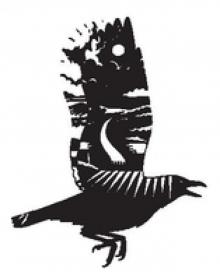- Home
- Iain M. Banks
Excession
Excession Read online
Table of Contents
About the Author
Title Page
Copyright Page
Dedication
Part 1 - Outside Context Problem
I
II
III
IV
V
VI
Part 2 - Not Invented Here
I
II
III
Part 3 - Uninvited Guests
I
II
III
IV
Part 4 - Dependency Principle
I
II
III
IV
V
Part 5 - Kiss The Blade
I
II
III
IV
V
VI
Part 6 - Pittance
I
II
III
IV
V
VI
Part 7 - Tier
I
II
III
IV
Part 8 - Killing Time
I
II
III
IV
V
VI
VII
VIII
Part 9 - Unacceptable Behaviour
I
II
III
IV
V
VI
VII
VIII
IX
X
XI
XII
XIII
XIV
Part 10 - Heavy Messing
I
II
III
IV
V
VI
VII
VIII
IX
X
XI
XII
XIII
XIV
XV
Part 11 - Regarding Gravious
I
II
III
IV
V
VI
VII
VIII
IX
X
XI
XII
XIII
XIV
Part 12 - Faring Well
I
II
III
IV
V
VI
Epilogue
Iain Banks came to widespread and controversial public notice with the publication of his first novel, The Wasp Factory, in 1984. Consider Phlebas, his first science fiction novel, was published under the name Iain M. Banks in 1987. He is now acclaimed as one of the most powerful, innovative and exciting writers of his generation. Iain Banks lives in Fife, Scotland. www.iainbanks.net
Find out more about Iain Banks and other Orbit authors by registering for the free monthly newsletter at www.orbitbooks.co.uk
By Iain M. Banks
CONSIDER PHLEBAS
THE PLAYER OF GAMES
USE OF WEAPONS
THE STATE OF THE ART
AGAINST A DARK BACKGROUND
FEERSUM ENDJINN
EXCESSION
INVERSIONS
LOOK TO WINDWARD
THE ALGEBRAIST
By Iain Banks
THE WASP FACTORY
WALKING ON GLASS
THE BRIDGE
ESPEDAIR STREET
CANAL DREAMS
THE CROW ROAD
COMPLICITY
WHIT
A SONG OF STONE
THE BUSINESS
DEAD AIR
THE STEEP APPROACH TO GARBADALE
Excession
IAIN M. BANKS
Hachette Digital
www.littlebrown.co.uk
Published by Hachette Digital 2008
Copyright © Iain M. Banks 1996
The moral right of the author has been asserted.
All characters in this publication are fictitious
and any resemblance to real persons, living or dead,
is purely coincidental.
All rights reserved.
No part of this publication may be reproduced,
stored in a retrieval system, or transmitted, in any
form or by any means, without the prior
permission in writing of the publisher, nor be
otherwise circulated in any form of binding or
cover other than that in which it is published and
without a similar condition including this
condition being imposed on the subsequent purchaser.
A CIP catalogue record for this book
is available from the British Library.
ISBN 978 0 7481 1000 1
This ebook produced by JOUVE, FRANCE
Hachette Digital
An imprint of
Little, Brown Book Group
100 Victoria Embankment
London EC4Y 0DY
An Hachette Livre UK Company
To the memory of Joan Woods
Prologue
A little more than one hundred days into the fortieth year of her confinement, Dajeil Gelian was visited in her lonely tower overlooking the sea by an avatar of the great ship that was her home.
Far out amongst the heaving grey waves, beneath drifting banks of mist, the great slow bodies of some of the small sea’s larger inhabitants humped and slid. Jets of vapour issued from the animals’ breathing holes in exhaled blasts that rose like ghostly, insubstantial geysers amongst the flock of birds accompanying the school, causing them to climb and wheel and scream, side-slipping and fluttering in the cool air. High above, slipping in and out of pink-rubbed layers of cloud like small slow clouds themselves, other creatures moved, dirigibles and kites cruising the upper atmosphere with wings and canopies extended, warming in the watery light of a new day.
That light came from a line, not a point in the sky, because the place where Dajeil Gelian lived was not an ordinary world. The single strand of fuzzy incandescence began near the far, seaward horizon, stretched across the sky and disappeared over the foliage-strewn lip of the two-thousand-metre-high cliff a kilometre behind the beach and the single tower. At dawn, the sun-line would have appeared to rise from the horizon to starboard; at mid-day it would be directly above the tower, and at sunset it would seem to disappear into the sea to port. It was mid-morning now, and the line lay about half-way up the sky, describing a glowing arc across the vault like some vast slow-moving skipping rope forever twirling above the day.
On either side of the bar of yellow-white light the sky beyond - the real sky; the sky above the clouds - could be seen; a solid-looking brown-black over-presence that hinted at the extreme pressures and temperatures contained within, and where other animals moved in a cloudscape of chemistries entirely toxic to that below, but which in shape and density mirrored the grey, wind-ruffled sea.
Steady lines of waves broke on the grey slope of the shingle beach, beating on shattered, ground-up shells, tiny fragments of hollow animal carapaces, brittle lengths of light-blighted sea-wrack, water-smoothed slivers of wood, pitted pebbles of foamstone like dainty marbles of porous bone and a general assortment of seaside detritus collected from a handful-hundred different planets strewn across the greater galaxy. Spray lifted from where the waves fell against the shore and brought the salty smell of the sea across the beach and the tangle of scrawny plants at its margin, over the low stone wall providing some protection to the tower’s seaward garden, and - wrapping around the stubby construction itself and scaling the high wall beyond - intermittently brought the sea’s iodine tang to the enclosed garden within, where Dajeil Gelian tended raised carpets of bright spreadling-flowers and the rustling, half-stunted forms of barb trees and shadow-
flowering wilderbush.
The woman heard the landward gate-bell tinkle, but already knew that she had a visitor because the black bird Gravious had told her, swooping from the misty sky a few minutes earlier to screech, ‘Company!’ at her through a writhing collection of beak-held prey before beating off again in search of more airborne insects for its winter larder. The woman had nodded at the bird’s retreating form, straightening and holding the small of her back as she did so and then absently stroking her swollen abdomen through the rich fabric of the heavy dress she wore.
The message borne by the bird had not needed to be any more elaborate; throughout the four decades she had lived here alone, Dajeil had only ever had to receive one visitor, the avatar of the vessel she thought of as her host and protector, and who was now quickly and accurately pushing aside the barb-tree branches as it made its way down the path from the land-gate. The only thing that Dajeil now found surprising was that her visitor was here at this moment; the avatar had attended her regularly - entirely as though dropping casually by while on a walk along the shore - for a short visit every eight days, and habitually arrived for a longer, more formal call - at which they ate breakfast, lunch or supper, accordingly - every thirty-two days. Going by that schedule, Dajeil ought not to be expecting a visit from the ship’s representative for another five days.
Dajeil carefully tucked a stray strand of her long, night-black hair back beneath her plain hair band and nodded to the tall figure making its way between the twisted trunks. ‘Good morning,’ she called.
The ship’s avatar called itself Amorphia, which apparently meant something reasonably profound in a language Dajeil did not know and had never considered worth studying. Amorphia was a gaunt, pale, androgynous creature, almost skeletally thin and a full head taller than Dajeil, who was herself both slender and tall. For the last dozen or so years, the avatar had taken to dressing all in black, and it was in black leggings, black tunic and a short black jerkin that it appeared now, its cropped blonde hair covered by a similarly dark skull cap. It took the cap off and bowed to Dajeil, smiling as though uncertain.
‘Dajeil, good morning. Are you well?’
‘I’m well, thank you,’ Dajeil said, who had long since given up protesting at or indeed being bothered by such probably redundant niceties. She was still convinced that the ship monitored her closely enough to know exactly how well she was - and she was anyway always in perfect health - but was nevertheless prepared to go along with the pretence that it did not watch over her so scrupulously, and so had to ask. Still, she did not respond in kind by asking after whatever might pass as the health of either a humanly formed but ship-controlled entity which functioned - as far as she knew - solely as the vessel’s contact with her, or indeed the ship itself. ‘Shall we go inside?’ she asked.
‘Yes. Thank you.’
The upper chamber of the tower was lit from above by the building’s translucent glass dome - which looked up to an increasingly cloudy, grey sky - and from the edges by gently glowing in-holo’d screens, a third of which showed blue-green underwater scenes, usually featuring some of the larger mammals and fish the sea outside contained, another third of which displayed bright images of soft-looking water-vapour clouds and the huge airborne creatures which played among them, and the last third of which seemingly looked out - on frequencies inaccessible directly to the human eye - into the dense dark turmoil of the gas-giant atmosphere held compressed in the artificial sky above, where yet stranger beasts moved.
Surrounded by brightly decorated covers, cushions and wall hangings, Dajeil reached from her couch to a low table of swirlingly carved bone and poured a warmed infusion of herbal juices from a glass pitcher into a goblet of hollowed crystal contained within a filigree of silver. She sat back. Her guest, sitting awkwardly on the edge of a delicate wooden seat, picked up the brimming vessel, looked around the room and then put the goblet to its lips and drank. Dajeil smiled.
The avatar Amorphia was deliberately formed to look not simply neither male nor female but as perfectly, artificially poised between maleness and femaleness as it was possible to be, and the ship had never made any pretence that its representative was other than completely its creature, with only the most cursory intellectual existence of its own. However, it still amused the woman to find her own small ways of proving to herself that this seemingly quite human person was nothing of the kind.
It had become one of the small, private games she played with the cadaverously sexless creature; she gave it a glass, cup or goblet full to the brim of the appropriate drink - indeed sometimes full beyond the brim, with only surface tension holding the liquid in the container - and then watched Amorphia lift it to her mouth and sip it, each and every time, without either spilling a single drop or appearing to devote any special attention to the act; a feat no human she had ever encountered could have performed.
Dajeil sipped her own drink, feeling its warmth make its way down her throat. Within her, her child stirred, and she patted her belly gently, without really thinking.
The avatar’s gaze seemed fixed on one particular holo screen. Dajeil twisted on the couch to look in the same direction and discovered violent action in a couple of the screens displaying the views from the gas-giant environment; a school of the habitat’s food-chain-topping predators - sharp, arrow-headed things, finned like missiles, venting gas from steering orifices - were shown from different angles as they fell together out of some towering column of cloud and swept through clearer atmosphere down upon a group of vaguely bird-like grazing animals clustered near the edge of an up-welling cloud-top. The avian creatures scattered, some crumpling and falling, some beating frantically away to the side, some disappearing, balled in fright, into the cloud. The predators darted and spun amongst them, most missing their fleeing prey, a few connecting; biting, slashing and killing.
Dajeil nodded. ‘Migration time, up there,’ she said. ‘Breeding season soon.’ She watched a grazer being torn apart and gulped down by a couple of the missile-bodied predators. ‘Mouths to feed,’ she said quietly, looking away. She shrugged. She recognised some of the predators and had given them her own nick-names, though the creatures she was really interested in were the much bigger, slower-moving animals - generally untroubled by the predators - which were like larger, more bulbous relations of the unfortunate grazer flock.
Dajeil had on occasion discussed details of the various ecologies contained within the ship’s habitats with Amorphia, who seemed politely interested and yet frankly ignorant on the subject even though the ship’s knowledge of the ecosystems was, in effect, total; the creatures belonged to the vessel, after all, whether you regarded them as passengers or pets. Much like herself, Dajeil thought sometimes.
Amorphia’s gaze remained fixed on the screens displaying the carnage taking place in the sky beyond the sky. ‘It is beautiful, isn’t it?’ the avatar said, sipping at the drink again. It glanced at Dajeil, who was looking surprised. ‘In a way,’ Amorphia added quickly.
Dajeil nodded slowly. ‘In its own way, yes of course.’ She leant forward and put her goblet on to the carved-bone table. ‘Why are you here today, Amorphia?’ she asked.
The ship’s representative looked startled. It came close, Dajeil thought, to spilling its drink.
‘To see how you are,’ the avatar said quickly.
Dajeil sighed. ‘Well,’ she said, ‘we have established that I’m well, and--’
‘And the child?’ Amorphia asked, glancing at the woman’s belly.
Dajeil rested her hand on her abdomen. ‘It is . . . as ever,’ she said quietly. ‘It is healthy.’
‘Good,’ Amorphia said, folding its long arms about itself and crossing its legs. The creature glanced at the holo screens again.
Dajeil was losing patience. ‘Amorphia, speaking as the ship; what is going on?’
The avatar looked at the woman with a strange, lost, wild look in its eyes, and for a moment Dajeil was worried that something had gone wrong, that the
ship had suffered some terrible injury or division, that it had gone quite mad (after all, its fellows regarded it as being half-mad already, at best) and left Amorphia abandoned to its own inadequate devices. Then the black-clad creature unfolded itself from the chair and paced to the single small window that faced the sea, drawing aside curtains to inspect the view. It put its hands to its arms, hugging itself.
‘Everything might be about to change, Dajeil,’ the avatar said hollowly, seemingly addressing the window. It glanced back at her for a moment. It clasped its hands behind its back. ‘The sea may have to become as stone, or steel; the sky, too. And you and I may have to part company.’ It turned to look at her, then came over to where she sat and perched on the other end of the couch, its thin frame hardly making an impression on the cushions. It stared into her eyes.
‘Become like stone?’ Dajeil said, still worrying about the mental health of the avatar or the ship controlling it, or both. ‘What do you mean?’
‘We - that is the ship . . .’ Amorphia said, placing one hand on its chest, ‘. . . we may finally have . . . a thing to do.’
‘A thing to do?’ Dajeil said. ‘What sort of thing to do?’
‘A thing which will require that our world here changes,’ the avatar said. ‘A thing which requires that - at the least - we have to put our animated guests into storage with everybody else - well, save for yourself - and then, perhaps, that we leave all our guests - all our guests - behind in appropriate other habitats.’
‘Including me?’
‘Including you, Dajeil.’
‘I see.’ She nodded. Leaving the tower; leaving the ship. Well, she thought, what a sudden end to my protected isolation. ‘While you?’ she asked the avatar. ‘You go off to do . . . what?’

 Use of Weapons
Use of Weapons Transition
Transition The Crow Road
The Crow Road Feersum Endjinn
Feersum Endjinn Matter
Matter Surface Detail
Surface Detail The Wasp Factory
The Wasp Factory Consider Phlebas
Consider Phlebas Against a Dark Background
Against a Dark Background Excession
Excession The Hydrogen Sonata
The Hydrogen Sonata The Algebraist
The Algebraist The Player of Games
The Player of Games The State of the Art
The State of the Art The Hydrogen Sonata c-10
The Hydrogen Sonata c-10 Excession c-5
Excession c-5 The Player of Games c-2
The Player of Games c-2 Matter c-8
Matter c-8 The State of The Art c-4
The State of The Art c-4 Look to Windward c-7
Look to Windward c-7 Consider Phlebas c-1
Consider Phlebas c-1